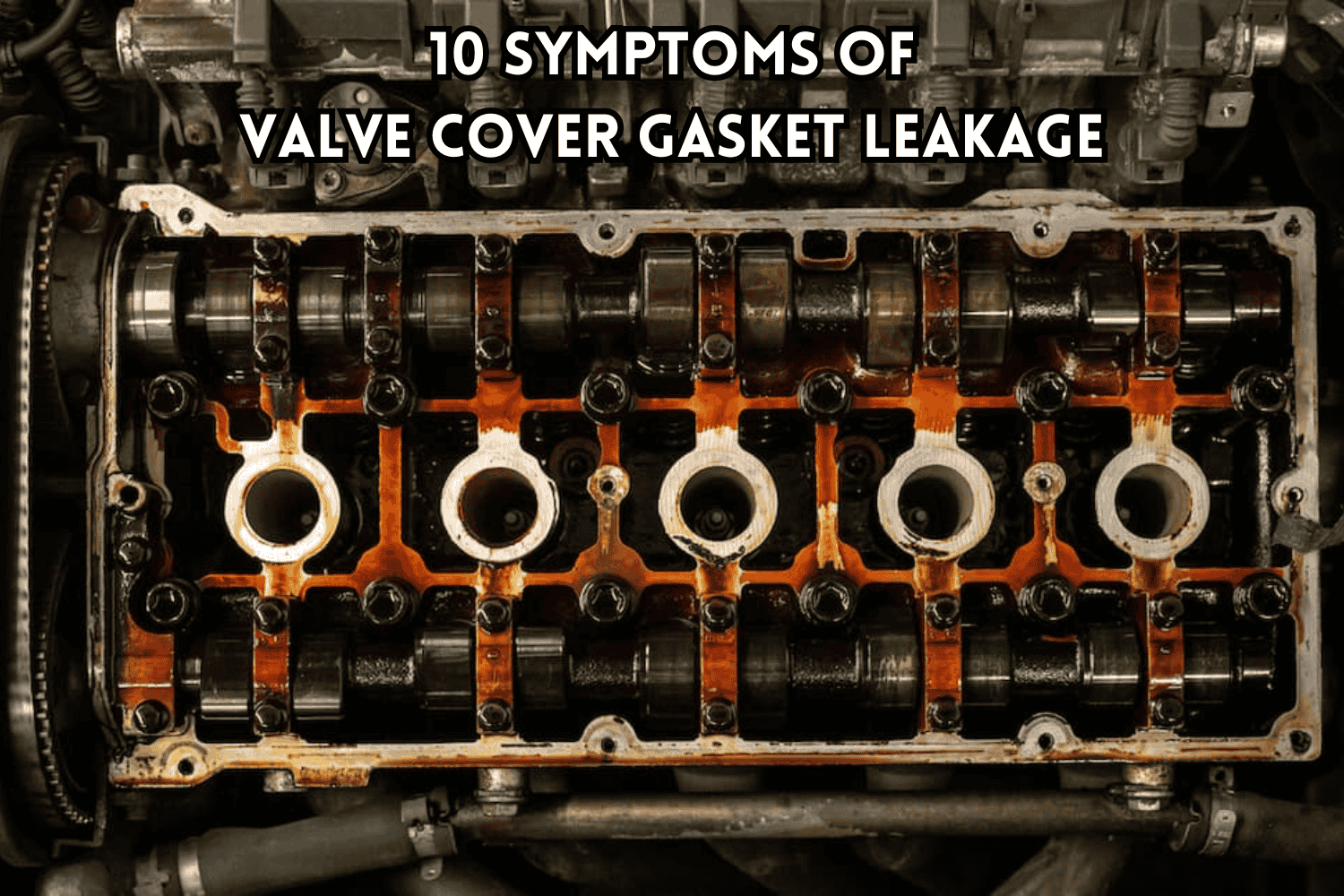
The gasket is a small but essential engine component and can cause problems if neglected.
After thorough research and experiments, our team has deduced 10 valve cover gasket leak symptoms that indicate that your gasket needs to be checked.
So, let’s start!
Role of the Valve Cover Gasket in the Engine
Before starting, let’s first go through the role of the valve cover gasket in the engine.
The valve cover gasket is a rubber or silicone seal that fits between the engine’s valve cover and cylinder head. It keeps the oil flowing inside the engine and prevents dirt and debris from mixing in it.
It contributes to the engine’s oil circulation efficiency, quality, and lubrication.
Why Addressing Valve Cover Gasket Leaks is Crucial?
Is a leaking valve cover gasket a big deal? Yes, it is.
A damaged gasket will make the engine face an oil starvation situation(due to oil leaks), and engine parts will start facing increased friction. All this contributes to the decreased fuel economy and reduction of engine efficiency, power, performance, and strength.
Many cases happen where people have to replace their alternator as it got wrecked due to severe oil leakage(oil contaminates electrical components and disrupts their functionality) so that’s another reason to keep an eye on valve cover leakage.
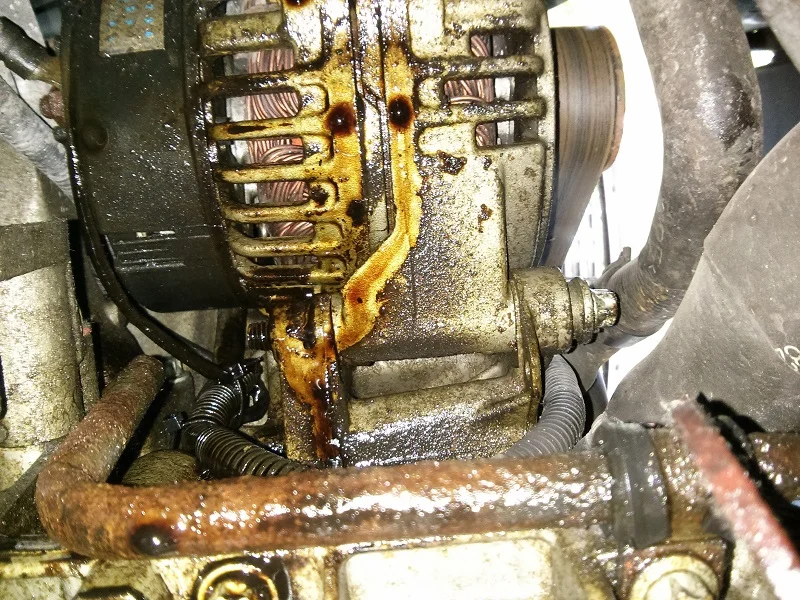
Also, in case of leakage, the car would be drawing in unmetered air through the valve cover gasket, which would result in the engine running lean and noticeable power loss.
Although the engine controller (PCM/ECM) will try to enrich the air/fuel mixture to make up for the air leak, it can only add about 12% fuel before it runs outside the control range. An opening the size of your thumb is plenty to make a smaller 4-cyl-engine vehicle run outside that control range.
Valve cover gaskets last for 4-5 years and may need replacement every 50,000 to 100,000 miles, depending on driving conditions, gasket quality, and proper installation.
Note: In some cases, it’s not the valve cover leak but an end camshaft plug seal so you must also check for it.
Common Symptoms of a Valve Cover Gasket Leak
Over time driving, overheating and pressure can cause the gasket to get damaged meanwhile, poor installation or low-quality materials also contribute to gasket failure.
But how do I know if my valve cover gasket is leaking? Let’s dive into it.
1. Oil Seepage and Leakage
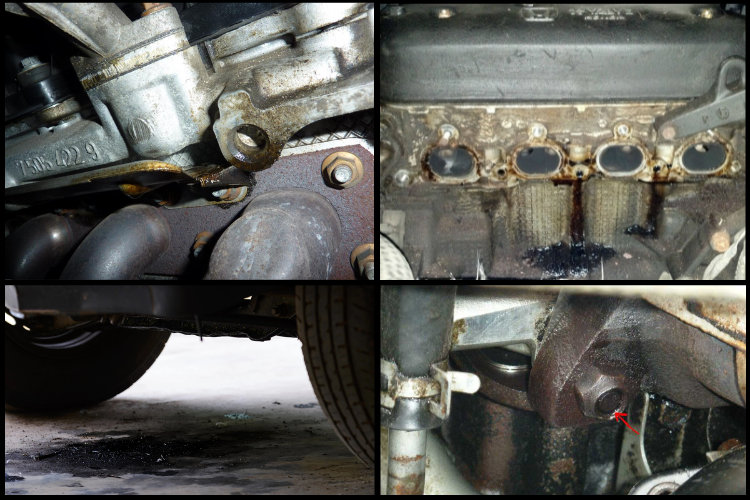
You’ll notice oil seeping around the edges of the valve cover.
In case of extreme leaks from the valve cover, you might notice pools of oil under your parked car or oil drips into your exhaust manifold.
Such leaks can also damage nearby parts i.e. belts and hoses or cause a fire if contact with hot surfaces.
2. Burning Oil Odor
Oil dripping onto hot engine components causes them to burn therefore producing a sharp, burning smell.
3. Smoke from the Engine Bay
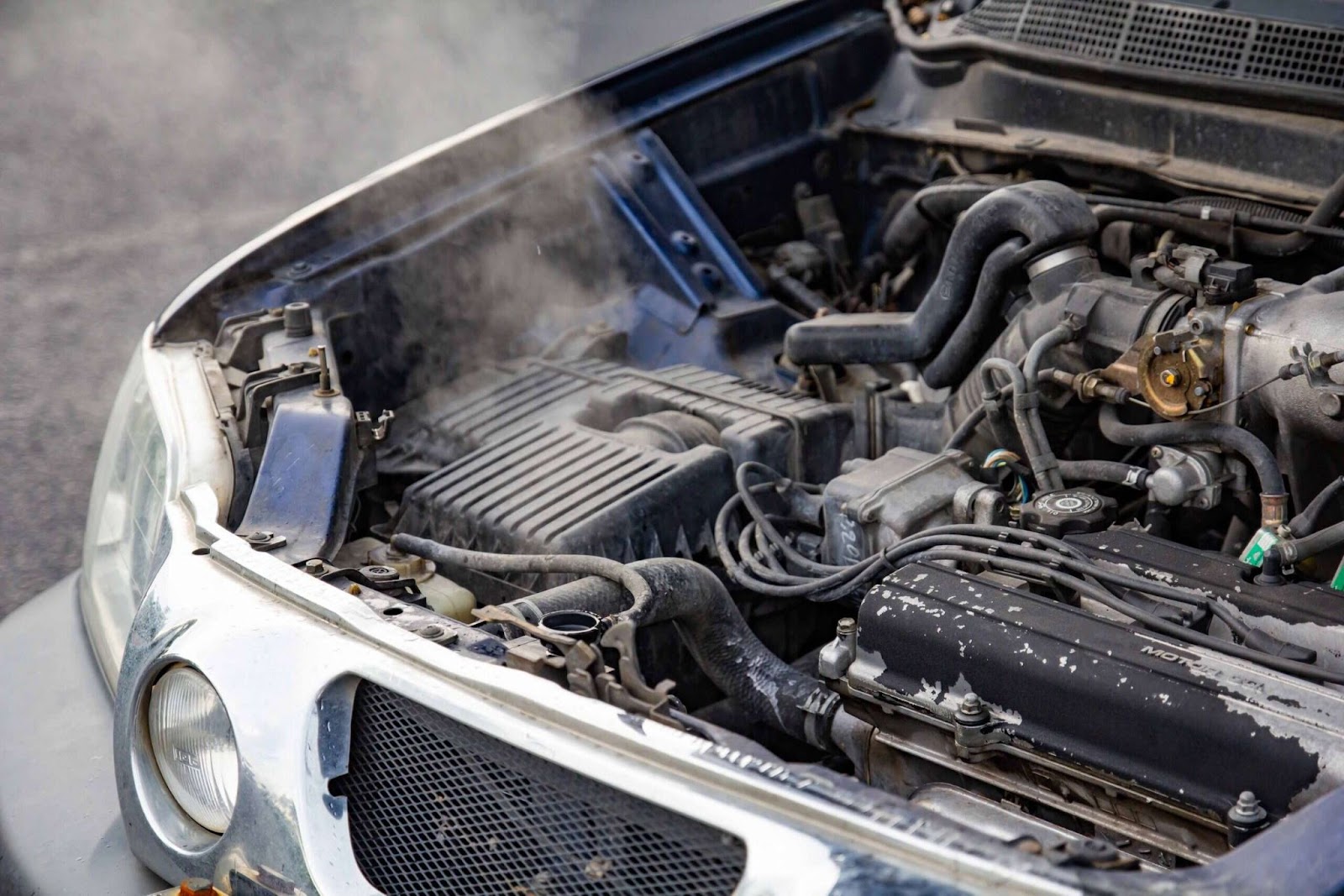
If oil drips onto the exhaust manifold, it will produce white or blue-colored smoke. This symptom is hard to miss and requires immediate attention.
4 . Engine Misfire
Leaks can cause oil to collect in the spark plug wells, leading to misfires due to disruption in the ignition process.
5. Low Oil Levels
A leaking gasket will lead to frequent dips in oil levels. If you find yourself adding oil more often, it’s a strong indicator of a leak.
You can check the oil level by using a dipstick.
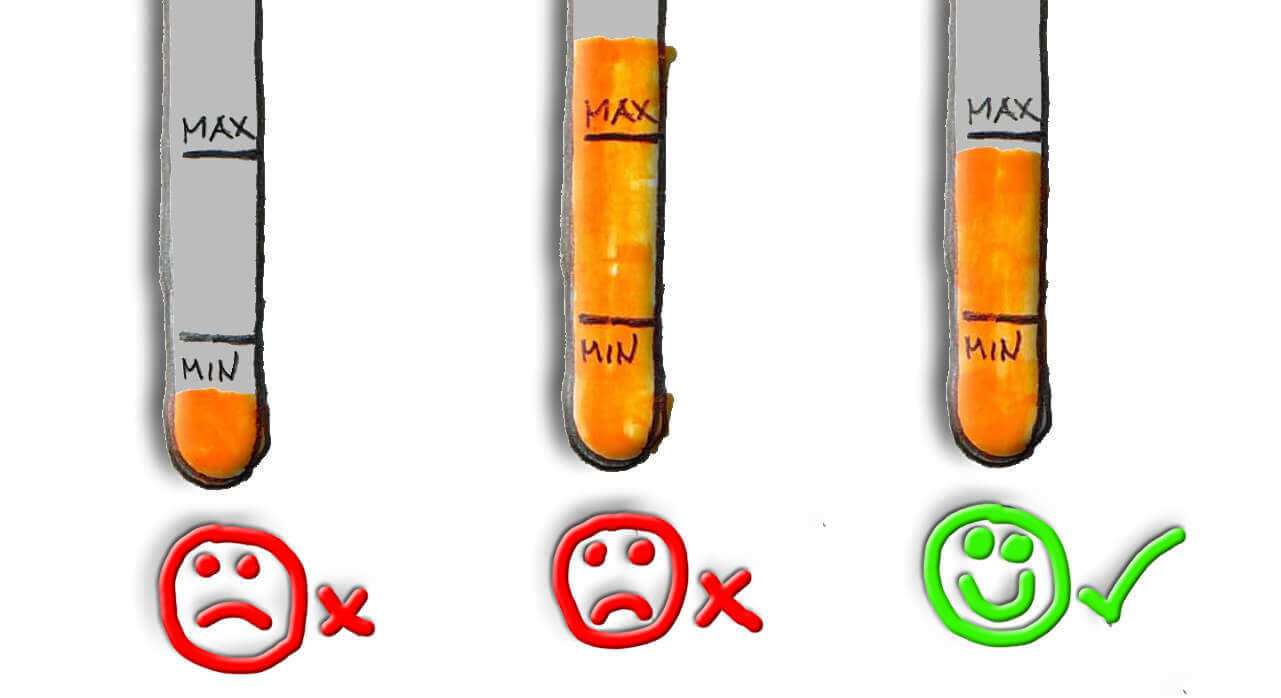
6. Visible Dirt and Debris Stuck to Oil Leaks
Oil leaks can attract dirt and debris, creating a sticky mess around the valve cover area.
7. Check Engine Light (CEL)

A valve cover gasket leak may trigger the check engine light, signaling issues with engine performance.
By the way, here is the detailed video on 9 reasons why the check engine light is on.
8. Engine Overheating
Leaks can compromise lubrication, causing the engine to overheat due to increased friction between moving parts.
9. Unusual Engine Noises
Oil leaks may cause strange knocking or ticking sounds as engine components struggle and collide with each other due to insufficient lubrication. You may even hear pinging sound during acceleration in case of severe leakage.
10. Visible Gasket Damages
Cracks, tears, or brittleness of the valve cover gasket also indicate the leakage.
By conducting inspections and maintenance regularly, one can identify issues early, avoiding more extensive and expensive repairs in the long run.
You can watch this video tutorial on valve cover gasket leakage if you want to see something practical.
The Bottom Line
A valve cover gasket leak is a potential hazard for both a vehicle as well as its driver that can impact your vehicle’s engine performance, longevity, and efficiency.
From oil seepage and burning odors to engine misfires and overheating, the above-described valve cover gasket leak symptoms are clear indicators that action is needed.
Ignoring these signs could lead to costly repairs and engine damage. Stay vigilant, address leaks promptly, and keep your engine in top-notch condition to enjoy a smooth driving experience.

